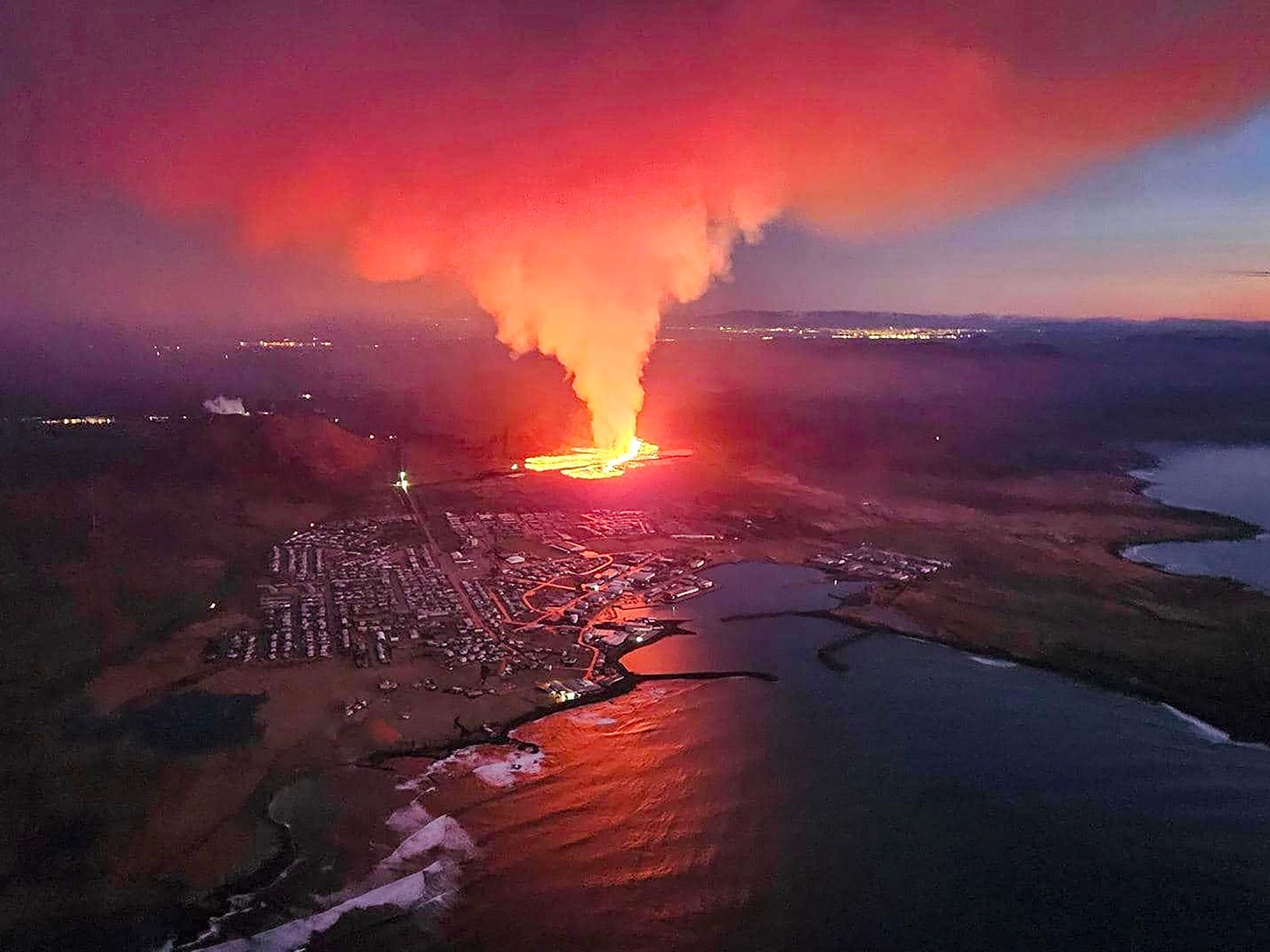Iceland's Recent Volcanic Eruptions Are Unleashing Deep Secrets [View all]
FEBRUARY 21, 2024
Each dramatic episode over the past few years has led to fresh geologic revelations, and researchers think another bout is on the way

Volcanic Eruption Near Grindavik
A volcanic eruption moves toward the outskirts of the evacuated town of Grindavik on Iceland’s Reykjanes Peninsula. Icelandic Department of Civil Protection and Emergency Management / AFP via Getty Images
Maya Wei-Haas
Reporter
An eruption cracked through the silence of night last December 18 as molten rock burst from the ground of Iceland’s Reykjanes Peninsula. Moments later, Celine Lucie Mandon’s phone rang, rousing her from near-sleep to alert her of the blast. Around 2 a.m., Mandon, a gas geochemist at the University of Iceland, and three of her colleagues stood before the incandescent fountains of lava, which bathed the snowy landscape and cloud-streaked skies in an otherworldly crimson glow.
“It was completely surreal, that color,” Mandon says. While they had brought headlamps, the group quickly realized artificial light was unnecessary. Illuminated by the molten rock’s radiance, the group delved into the purpose of their late-night venture: collecting lava samples and measuring volcanic gasses.
These efforts are just one part of the enormous push to study the many recent eruptions on the Reykjanes Peninsula. The region’s volcanoes had slumbered for almost 800 years, but they awoke with a roar in 2021 during the Fagradalsfjall eruption. For nearly six months, lava poured from a fissure roughly 3 miles east of December’s blast, steadily filling the valley with molten rock. Now, with six eruptions rocking the Reykjanes in just three years, scientists suspect the peninsula has entered a new period of volcanic activity—the beginning of possibly centuries of geologic unrest.
Each eruption provides glimpses into the deep, giving researchers a detailed understanding of the volcanic processes transpiring far below the surface. These insights help them suss out the origins of the magma, how the volcanic system evolved over time and more.
These studies are also unearthing unexpected chemical similarities between the lavas of each eruption that hint at deep subsurface connections across the peninsula. “This is very surprising,” says Edward Marshall, a geochemist at the University of Iceland, who is studying the chemical conundrum. “Volcanoes pop up in different places—they’re not supposed to talk to each other.”
